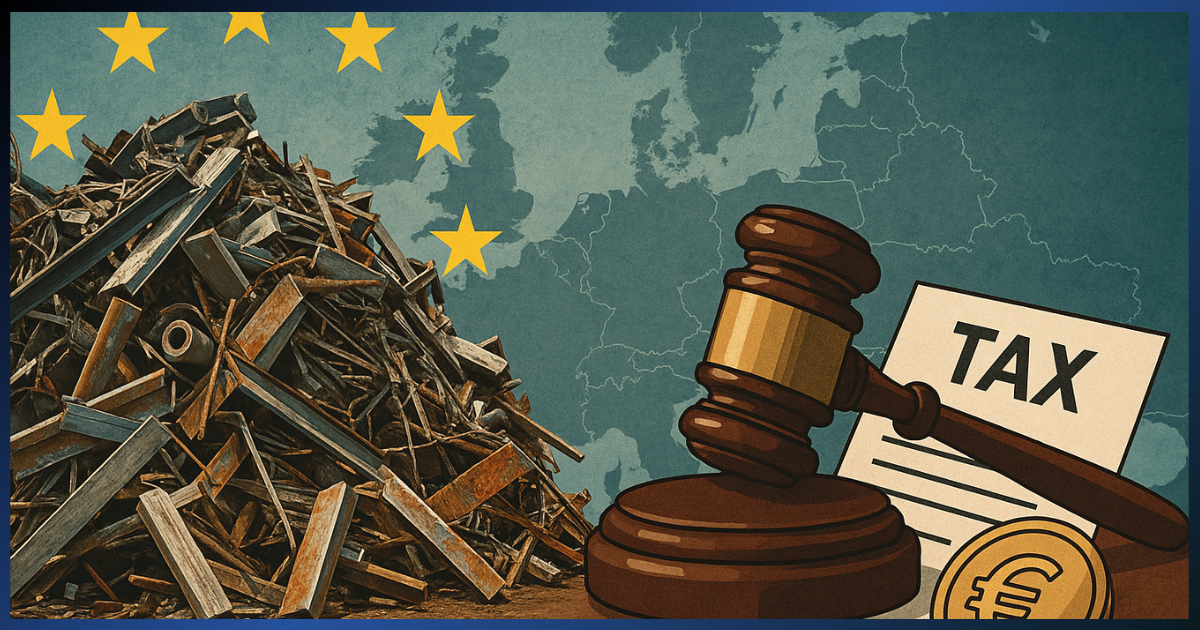India–US Trade Tensions Rise Over Steel and Auto Tariffs NMDC Limited reports a 38% drop in Q4 FY24 consolidated net profit RINL to Raise $23 Million Through Land Sales Amid Crisis

In an effort to fortify its circular economy and strengthen critical supply chains, the European Union has called for tougher export taxes on steel and aluminium scrap. Officials say this step will keep these materials within the EU, helping local recyclers and manufacturers thrive.
Why this matters:
Supports green goals: Keeping scrap within the EU cuts down on transport emissions and bolsters recycling—a key pillar of the bloc’s sustainability targets.
Secures supply chains: Amid global shortages and rising raw material prices, retaining scrap locally provides a steady input to industries.
Boosts competitiveness: EU recyclers and steelmakers gain a financial edge, leading to innovation and investment in clean technologies.
The proposal comes amid geopolitical shifts that have disrupted trade, emphasizing the need for stronger internal resource resilience. It also aligns with expectations from the European Parliament and environmental groups pushing for expanded "waste hierarchy" rules—prioritizing recycling over landfilling or exporting.
Still, some industry stakeholders warn that export taxes could stoke international trade tension and prompt price hikes. They urge a balanced approach to avoid unintended consequences.
As the EU advances draft regulations, negotiations are anticipated among its member states and Parliament. The outcome could significantly reshape how Europe handles scrap metal, underpinning its sustainability strategy and industrial self-reliance.
Also Read : EU appeals WTO ruling on Indonesia steel safeguard duties EU Plans 25–50% Tariffs on Chinese Steel to Protect Local Industry